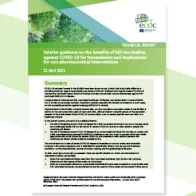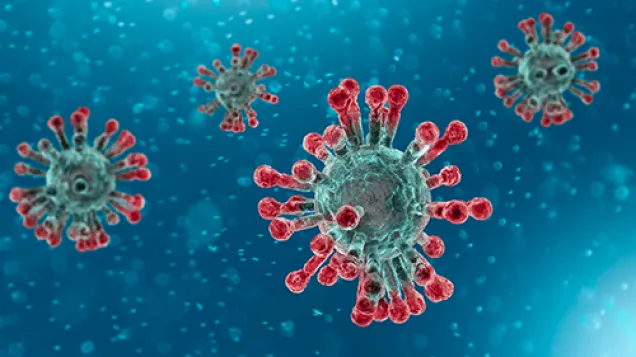ECDC guidance for adjusting non-pharmaceutical interventions based on vaccination status
In the Interim guidance on the benefits of full vaccination against COVID-19 for transmission and implications for non-pharmaceutical interventions, ECDC provides guidance for adjustment of non-pharmaceutical interventions (NPIs) based on an assessment of the risk for fully vaccinated individuals to become infected and develop severe COVID-19.
“As the vaccination roll-out advances, it is encouraging to have evidence-based recommendations that immunisation can slowly allow relaxation of non-pharmaceutical interventions such use of masks and physical distancing. While relaxation of the protection measures must be done gradually and based on careful assessments of the risks involved, we are confident that increased vaccination coverage will have a positive and direct impact towards returning to normal lives.” said Andrea Ammon, ECDC Director.
In the light of the available evidence, ECDC has developed scenarios where Member States can consider waiving or relaxing NPIs in meetings between two individuals, households or social bubbles:
- When fully vaccinated individuals meet other fully vaccinated individuals, NPIs such as physical distancing and the wearing of face masks can be relaxed, including for older adults;
- When fully vaccinated young and middle-aged adults meet unvaccinated people, NPIs such as physical distancing and wearing of face masks can be relaxed as long as no one present has a risk factor for severe disease.
Currently, NPIs are recommended to be kept in place during meetings between vaccinated and unvaccinated persons if any of them are older adults or individuals at increased risk for severe COVID-19 disease or where there is high circulation of variants of concern with potential for immune escape.
NPIs should be maintained in public spaces and in large gatherings, irrespective of the vaccination status of the individuals.
In some situations, requirements for testing and quarantine for travel can be waived or adjusted for fully vaccinated individuals. Public health authorities may consider exempting fully vaccinated individuals from repeat testing in occupational and other community settings.
Rapid and effective deployment of vaccines is essential to reduce the number of susceptible individuals, hospitalizations, deaths and the viral circulation of COVID-19 in the community, so that a stronger relaxation of measures for fully vaccinated individuals can be permitted. ECDC will continue to gather and analyse evidence on vaccine effectiveness in order to revise its guidance accordingly.
Read the report
Share this page




